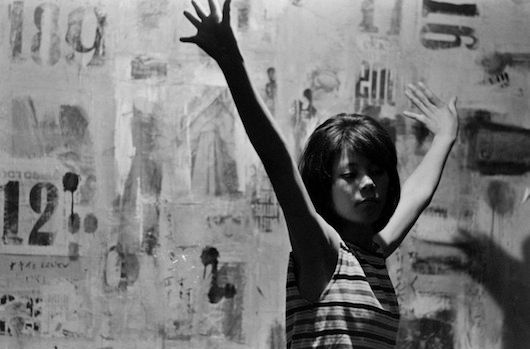
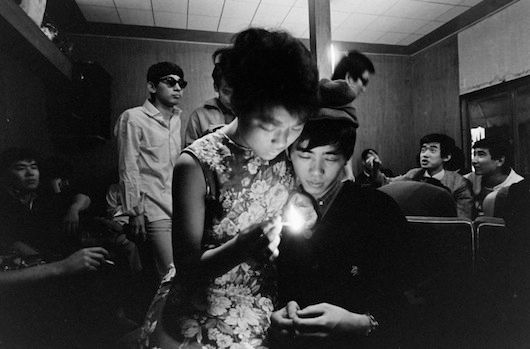
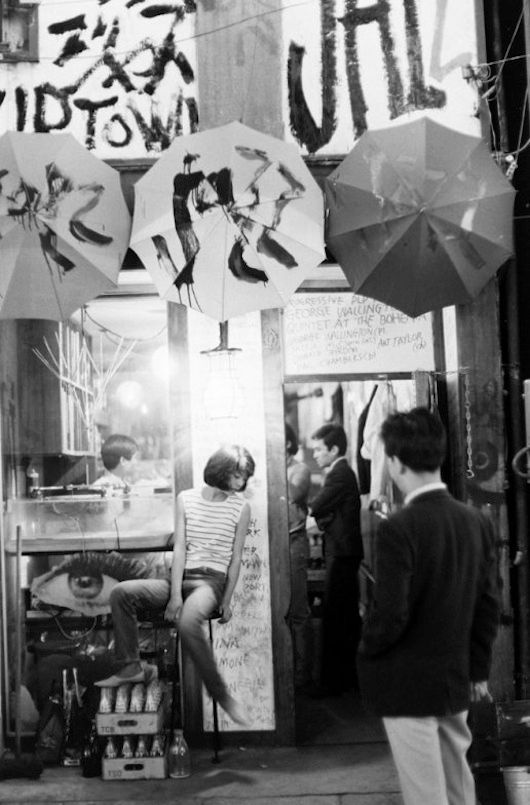
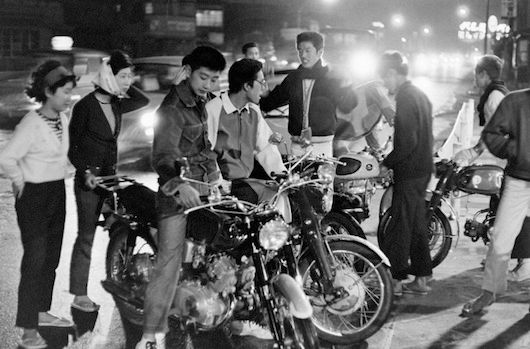
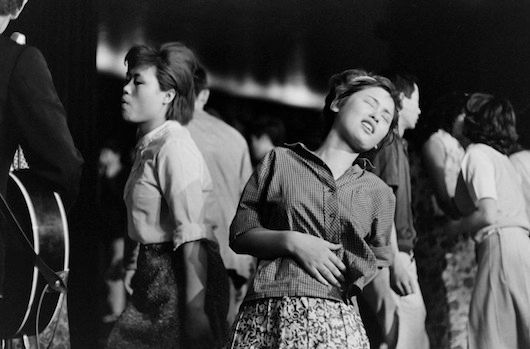
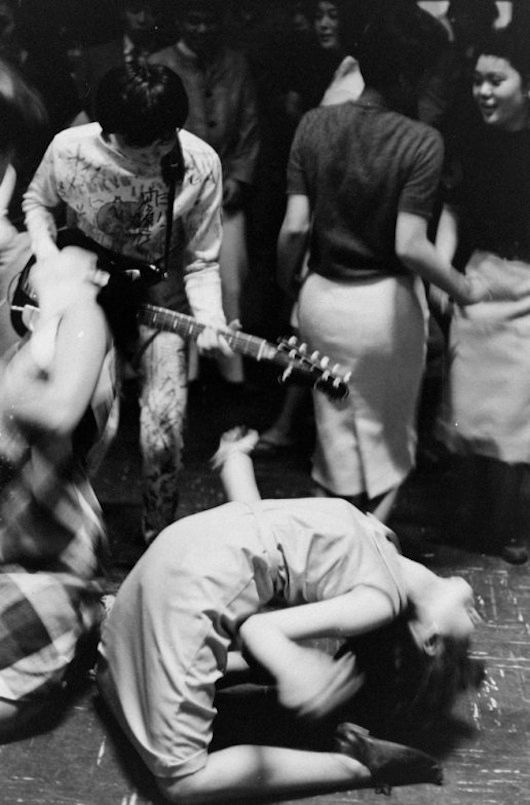
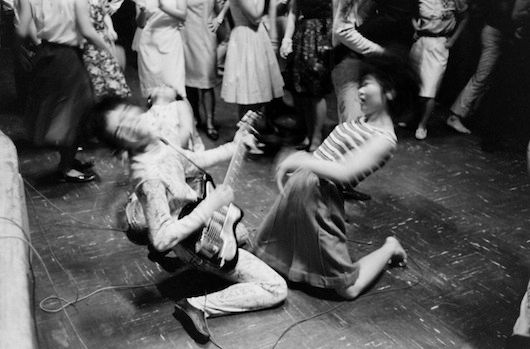
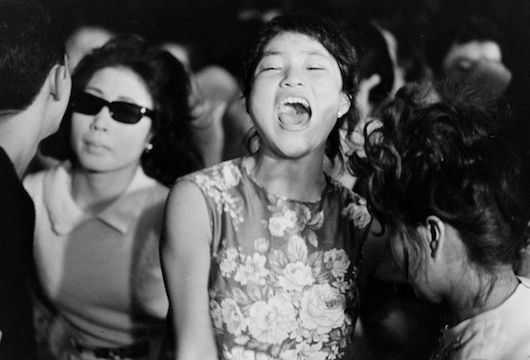
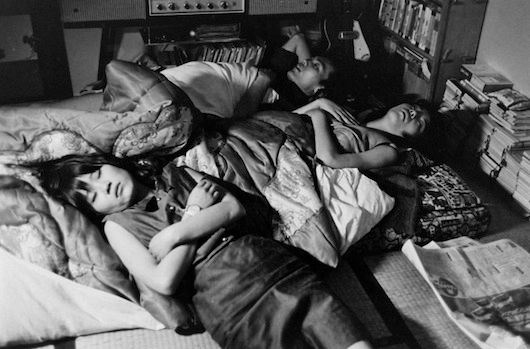
Summer always spells freedom to me. When you're younger a release from the purgatory of the school system. When you're older at least the longer days offer more leniency in your schedule. Perhaps that's why as summer approaches I keep stumbling across photographic essays of youth in revolt that strike such a chord with me. I see these images and something within me just resounds "yes yes yes."
These photographs from Tokyo were taken by Michael Rougier and ran in a 1964 issue of LIFE magazine (that I'm incredibly tempted to try to hunt down via eBay or something). Much of this article about the series is a focus on the nihilism and the "lost youth." They almost sound like a generation of pill-popping Peter Pans. Perhaps the author is accurate in his observations and Rougier witnessed everything firsthand stating, "A large segment of Japanese young people are, deep down, desperately unhappy and lost. And they talk freely about their frustrations. Many have lost respect for their elders, always a keystone of Japanese life, and in some cases denounce the older people for “for having gotten us into a senseless war.” However, when I look at these images I see a sense of freedom--of that generation not lost but breaking free of the confines expected of them. Is it lost to seek an unknown path? There's also so much community in each image--dancing together, riding together, sleeping together--they have left more traditional society, but they haven't found themselves alone and bereft. The text just smacks to me of the generational and cultural gap between photographer and subject. Every older generation thinks the next one is lost and nihilistic...
Still, I'm in deep admiration of the gritty and often intimate photographs. Rougier definitely captured raw emotion with his lens and so many beautiful moments that now link us to this specific time of extreme change and social upheaval. I could stare at many of them for hours absorbing the contrast between fleeting "salary men" in the background and emotive teenagers in the foreground.
In the end, all observations from an outsider are just that--outside. I'd be much more interested in reading an interview or article written from one of the youth depicted either from 1964 or their memories today about what that period of life was like and learn about where they are now. How do you feel when you view these photographs?

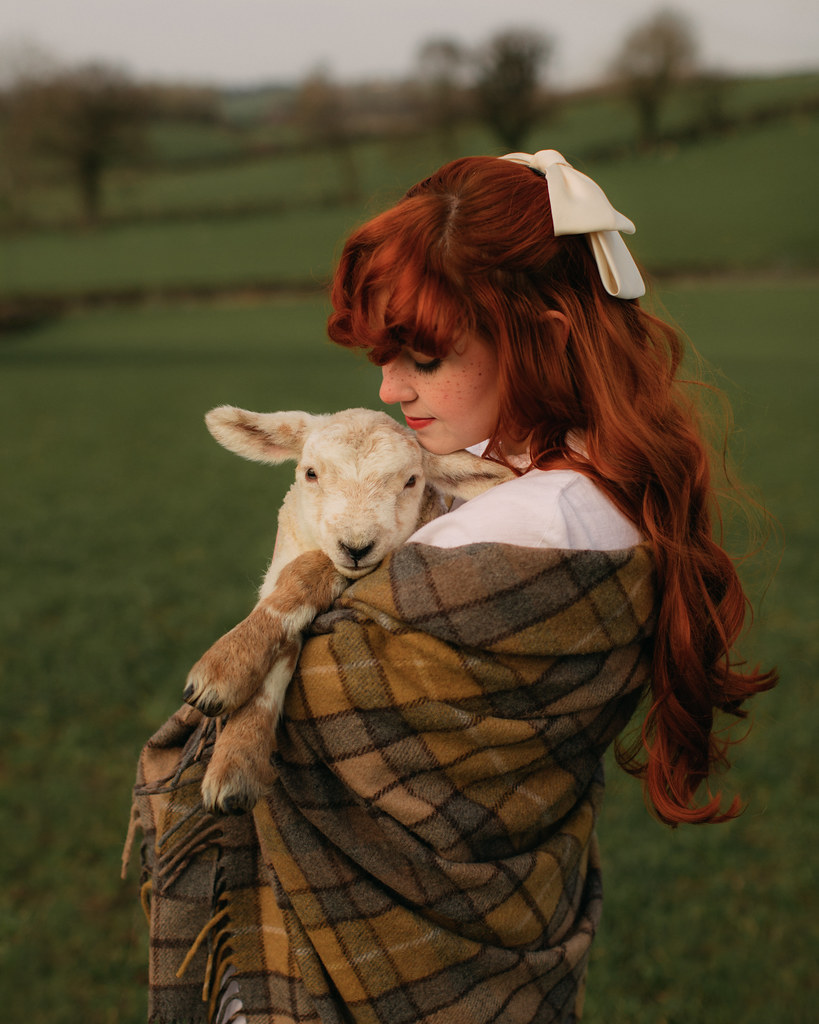


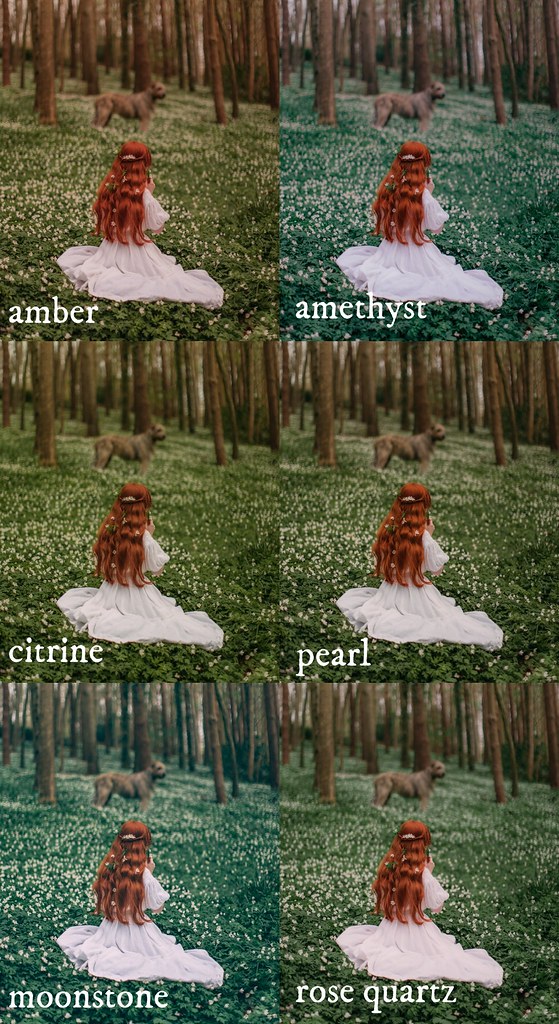
CONVERSATION